I recently came across the following Nature article, “People systematically overlook subtractive changes.” From the abstract:
“Here we show that people systematically default to searching for additive transformations, and consequently overlook subtractive transformations. Across eight experiments, participants were less likely to identify advantageous subtractive changes … Defaulting to searches for additive changes may be one reason that people struggle to mitigate overburdened schedules, institutional red tape and damaging effects on the planet.”
This research fits into the theme of books such as Essenialism, The ONE Thing or Hell Yeah or No. When we want to improve life, we think of adding things–new goals, efforts and commitments. Removing things to improve life is often overlooked.
This is something I’ve given a lot of thought to since becoming a father. The best changes I made in the last year tended to come from subtracting something rather than adding new efforts. Quitting social media, for instance, had much better results than I had expected.
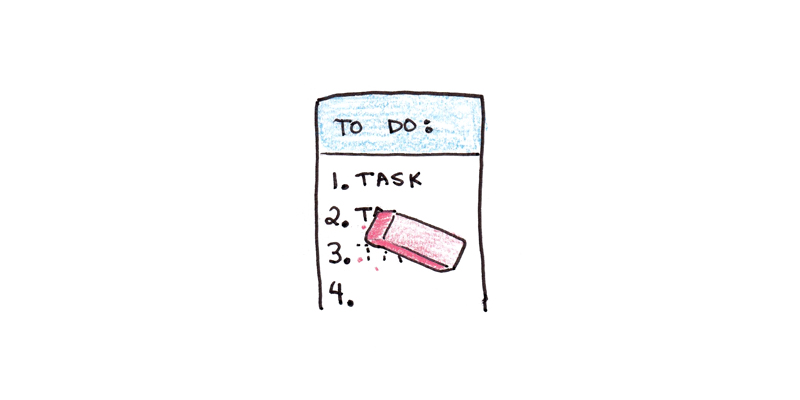
Cal Newport published a similar essay to mine recently. Funnily enough, I had finished writing this prior to seeing his. However, given their overlapping source material and conclusions, I encourage everyone to read Cal’s essay as well.
Every Yes Implies a No
Logically speaking, since time is a fixed quantity, everything you say yes to implies a no to something else and vice versa. Seen this way, there ought to be no difference between additive and subtractive life changes.
But our minds can’t easily appreciate this non-dual nature of reality. Saying yes subtly squeezes everything else, but rarely in ways we can easily perceive. When saying no, what is left over is enriched, but this additional space is often neglected.
I think there’s a connection between this idea and my current research project. We often spread ourselves so thinly that we find it hard to get to the threshold of effort needed to do the real thing. Many of our hobbies, interests or even professional ambitions get stuck as a consequence.
This is something I definitely sympathize with. I have too many things I want to learn, and old skills I struggle to maintain. Being broadly interested is great, but the downside is very often that you stretch yourself too thin, rarely leaving enough time to delve deep enough to make real progress.
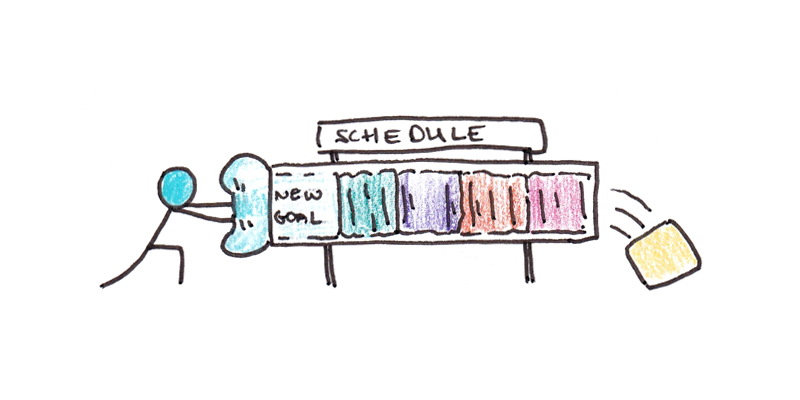
“No” or “Not Right Now”
We tend to think of procrastination as a vice, but it can be a powerful tool to deal with our overloaded lives. The problem is simply that saying “no” to a particular pursuit can be hard. But saying “not right now” works just as well. It prevents the pursuit from taking up time, while leaving open the possibility of change later.
A good friend of mine was encouraging me to take up tennis recently. There’s public tennis court near my apartment and I could see myself really getting into it. But getting good enough to play would require a fair bit of practice, even maybe taking lessons. It’s a nice idea, but not something I have time for now. Saying “not right now” keeps my schedule sane without closing the door on it altogether.
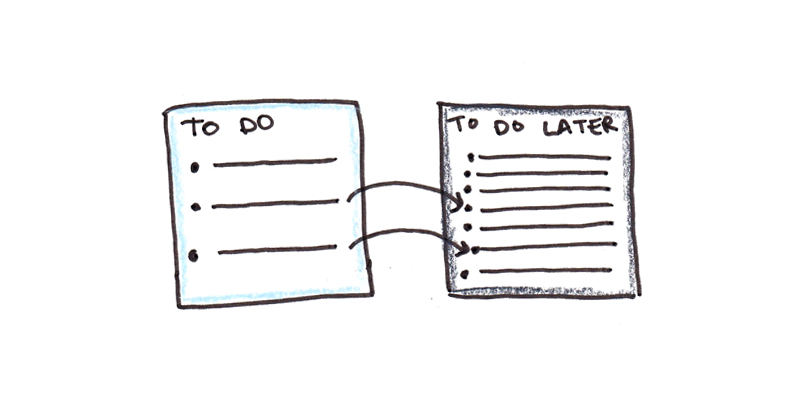
Only Home-Run Projects
In my work, this attitude has crystalized into a mantra to only take on “home-run” projects. It’s too easy to get sucked into the allure of “small” projects, that have unclear value. Of course, the small projects end up being not-that-small, and the value they were supposed to create fails to materialize.
The point isn’t to take on only big projects, but simply to be much stricter in evaluating which projects to pursue. If something doesn’t either have a significant and near-certain upside, or a potentially enormous and uncertain upside, it probably isn’t worth considering.
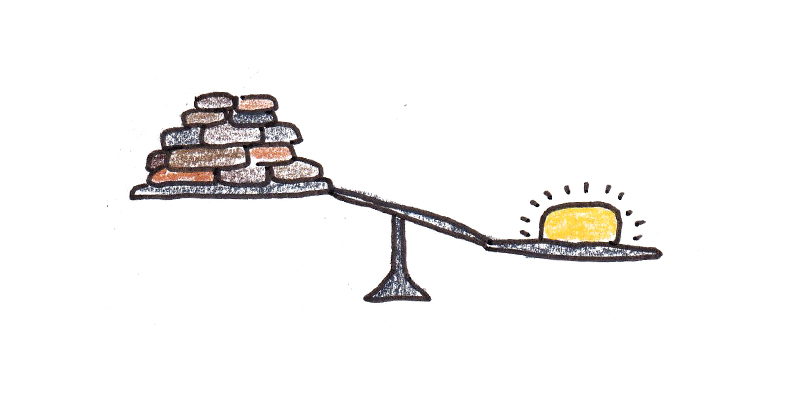
An entrepreneur friend of mine told me that he doesn’t work on any project that doesn’t have the potential to increase revenue by at least ten percent. I don’t think of my own projects in purely monetary terms, but I do think this is useful heuristic when evaluating your professional work.
Overwhelmed with Easy
Previously, I’ve asserted that the hard way is often the easy way. Committing to doing something you know will be hard, paradoxically, often results in an easier time than opting for something that seems easy.
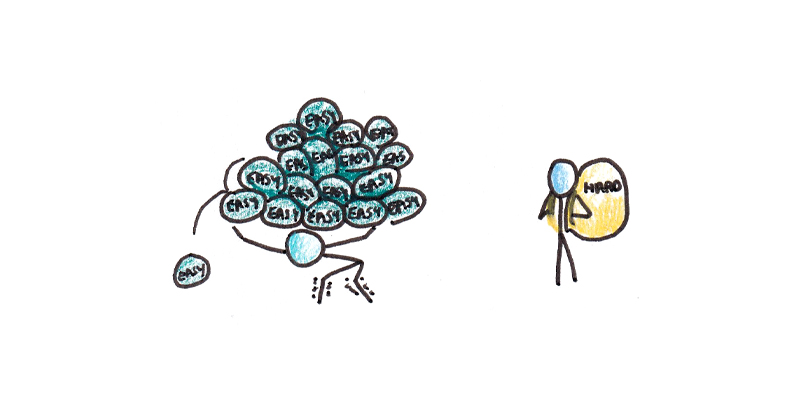
I think the issue of subtractive changes helps explain this. When you take on a hard goal, you naturally make room for it. A goal that pretends to be easy doesn’t require those adjustments, so they’re rarely made. Instead, they squeeze down on everything else in your life until those other things start pushing back.
In many cases, I think, we’ve opted for the inverted problem. Instead of clarifying our pursuits into the few, difficult obstacles they represent and deliberately crafting strategies for dealing with them, we’ve opted for a myriad of seemingly easy problems. Except the easy problems end up filling up our lives, leaving little room for what really matters.


 I'm a Wall Street Journal bestselling author, podcast host, computer programmer and an avid reader. Since 2006, I've published weekly essays on this website to help people like you learn and think better. My work has been featured in The New York Times, BBC, TEDx, Pocket, Business Insider and more. I don't promise I have all the answers, just a place to start.
I'm a Wall Street Journal bestselling author, podcast host, computer programmer and an avid reader. Since 2006, I've published weekly essays on this website to help people like you learn and think better. My work has been featured in The New York Times, BBC, TEDx, Pocket, Business Insider and more. I don't promise I have all the answers, just a place to start.